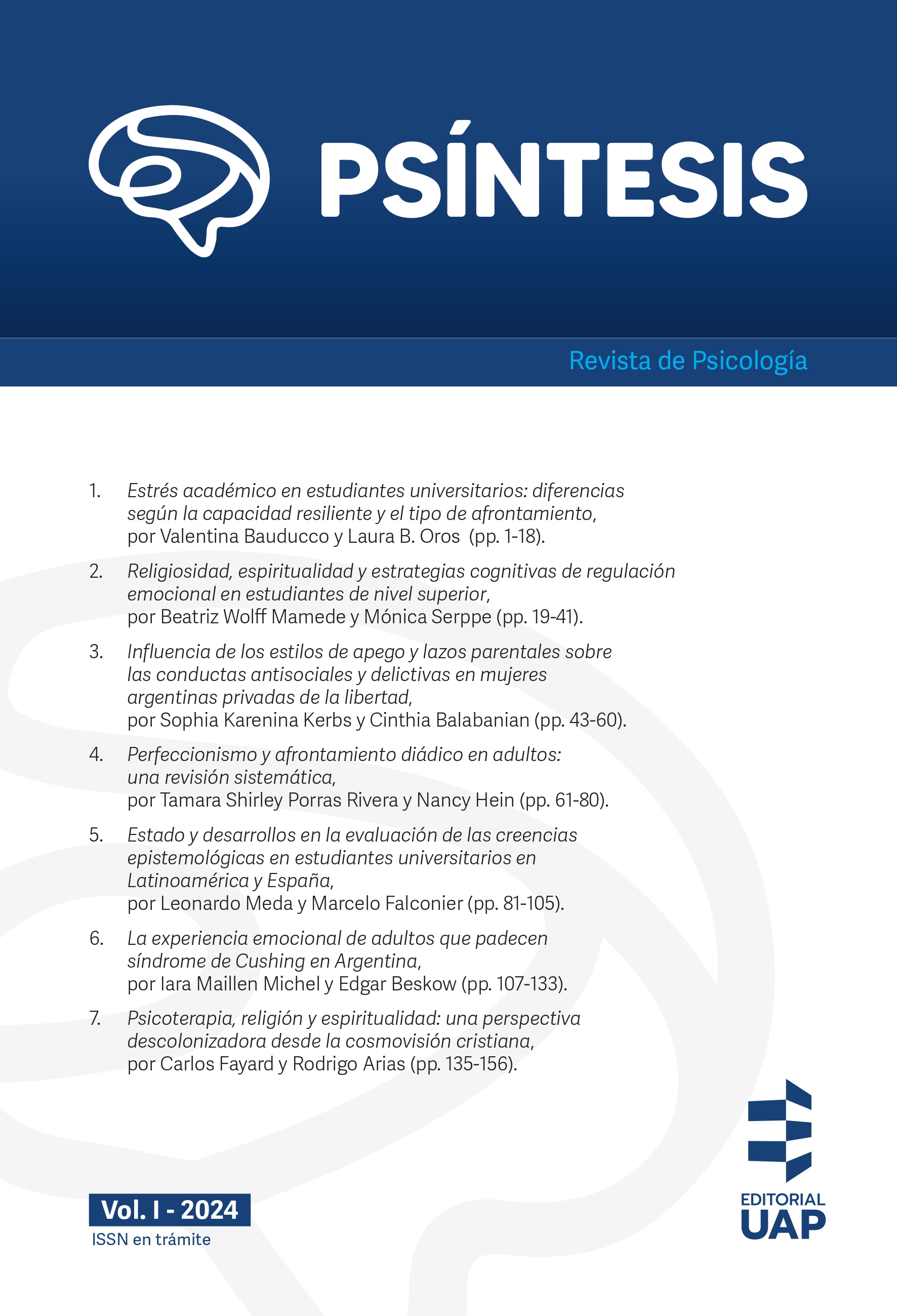State and developments in the assessment of epistemological beliefs in university students in Latin America and Spain
Keywords:
Epistemological beliefs — Evaluation — Measurement — InstrumentsAbstract
Research on epistemological beliefs has become more relevant in recent decades within educational psychology and the analysis of higher education. The growth of studies in Spanish-speaking populations in recent years justifies a survey of the state of the art in the measurement of this variable, so the objectives of this work were: (a) To know the instruments that have been studied and/or adapted to Spanish in Latin America and Spain, applied in university students, as well as the results obtained; (b) in the case of new instruments created in Latin America or Spain, evaluate the approach from which the epistemological beliefs and psychometric properties are studied. Following the PRISMA guidelines, 347 papers were extracted and reviewed from the databases ERIC, Scielo, Latindex, Science Direct, Scopus, Dialnet, Redalyc, Academic Google, and ResearchGate, and 21 empirical studies that met the inclusion criteria were selected. Regarding the objectives, it was found that the most widely used approach to assess epistemological beliefs is the belief system, with Schommer’s Epistemological Beliefs Questionnaire being the most adapted test so far. In general, the results show that the evaluation of epistemological beliefs in Latin America and Spain has little development and that the existing instruments that attempt to measure these beliefs mostly are based on the contribution of Schommer-Atkins based on a belief system.Downloads
Published
2024-12-17
Issue
Section
Artículos


